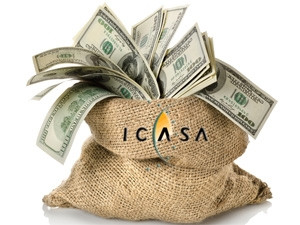
The Independent Communications Authority of SA (ICASA) is still trying to recover more than R210 million in licence fees from government departments, with the South African National Defence Force (SANDF) and South African Police Services (SAPS) holding the highest unpaid bills.
According to communications minister Yunus Carrim, the sector's regulator is owed a sum total of R211 202 703 by national and provincial government departments - a red figure that has gone up tenfold since 2011.
The SANDF alone owes R189 million for spectrum licence fees - an amount that was recently marginally dented by a R6 million payment by the state-owned defence force.
Carrim says the entity has submitted a request to reduce its spectrum usage for 2013/14. As for the SAPS fees, he says a purchase order was submitted and payments will be effected before the end of the year.
ICASA spokesperson Paseka Maleka says the authority is continuously trying to recover outstanding licence fees and has had to use a number of mechanisms to do so. "This includes reviewing disputed amounts (if any), and legal action to recover outstanding licence fees where necessary."
Maleka says intermittent payments have been made. ICASA did not divulge what the consequences would be should the licence fees remain outstanding, saying only: "The authority continues to engage government departments through the National Treasury to see how best the matter of outstanding licence fees can be concluded."
In May, ICASA conceded it needed to up its efforts in terms of compliance and enforcement amid licensee disputes, capacity constraints, and outstanding fees - then sitting at more than R480 million in total.
The telecoms watchdog said, however, that capacity issues were holding it back from exercising full enforcement.
At the time, Maleka said most of the outstanding fees were for the use of the radio frequency spectrum, and were "mostly disputed by some of the licensees". The fees have been unsettled for anything from two to 10 years.
Share